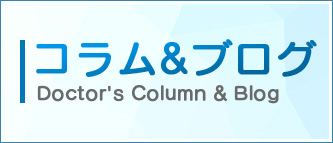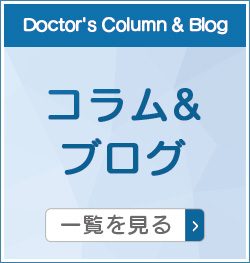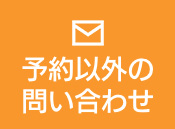9月14日(月)
米中覇権全面兆限戦争の最中にあって、新型コロナウイルスが及ぼした影響は少なくありません。コロナパンデミックについて、ホワイトハウスでジョン・ボルトン氏はどのように働いていたのか、中国に対しては、どのような見方をしていたのかが気になるところです。
そこで、2回に分けて彼の証言記録を読んでみることにしました。
Excerpt from
Chapter 10 Thunder Out of China
第10章 中国からの雷鳴
からの抜粋
More thunder out of China, in the form of the coronavirus pandemic, came in early 2020. Although epidemiologists (not mention biological weapon experts) will be studying this catastrophe long into the future; the mark of the China’s authoritarian government and social-control systems is all over it. There is little doubt that China delayed, withheld, fabricated, and distorted information about the origin, timing, spread, and extent of the disease; suppressed dissent physicians and others; hindered outside efforts by the World Health Organization and others to get accurate information; and engaged in active disinformation campaigns, actually trying to argue that the virus (SARS-CoV-2) and the disease itself (COVID-19) did not originate in China. Ironically, some of the worst effects of China’s cover-up were visited on its closest allies. Iran, for example, looked to be one of the worst -hit countries, with satellite photos showing the excavation of burial pits for the expected victims of COVID-19.
コロナウイルスのパンデミックという形で、中国からさらなる雷が2020年初頭にやってきた。疫学者(生物兵器の専門家は言うまでもなく)は、この大惨事を将来に渡って研究することになるだろうが、中国の権威主義的な政府と社会統制システムの痕跡は、そのすべてを覆っている。中国がこの病気の起源、時期、蔓延、範囲についての情報を遅らせ、保留し、捏造し、歪曲したこと、反対意見を持つ医師などを弾圧したこと、正確な情報を得るための世界保健機関(WHO)などの外部の努力を妨げたこと、そして、ウイルス(SARS-CoV-2)や病気そのもの(COVID-19)が中国で発生したものではないと実際に主張しようとする積極的なディスインフォメーション(註)・キャンペーンに従事したことは疑いの余地がない。皮肉なことに、中国の隠蔽工作の最悪の影響のいくつかは、最も近い同盟国にも及んでいる。例えば、イランは最悪の被害を受けた国の一つであり、衛星写真にはCOVID-19の犠牲者となると予想される人々のために埋葬穴を掘っている様子が写っていた。
註:ディスインフォメーション【disinformation】
国家・企業・組織あるいは人の信用を失墜させるために、マスコミなどを利用して故意に流す虚偽の情報。
With 2020 begins a presidential election year, it was inevitable that Trump’s performance in this global health emergency would become a campaign issue, which it did almost immediately. And there was plenty of criticize, starting with the Administration’s early, relentless assertion that the disease was “contained” and would have little or no economic effect. Larry Kudlow, Chairman of the National Economic Council, said, on February25,” We have contained this. I won’t say [it’s]airtight, but it’s pretty close to airtight.” Market reactions to these kinds of assertions were decidedly negative, which may finally have woken the White House up to the seriousness of the problem. And obviously, in addition to the humanitarian implications, the economic and business consequences would certainly continue to reverberate through the November elections and beyond. Trump’s reflex effort to talk his way out of anything, however, even a public-health crisis, only undercut his and the nation’s credibility, with his statements looking more like political damage control than responsible public -health advice. One particular egregious example was a new report that the Administration tried to classify certain public-health information regarding the United States on the spurious excuse that China was involved. Of course China was involved, which is a reason to disseminate the information broadly, not restrict it. This, Trump was reluctant to do throughout the crisis, for fear of adversely affecting the elusive definitive trade with China, or offending the ever-so-sensitive Xi Jinping.
2020年は大統領選挙の年であり、この世界的な健康被害の緊急事態におけるトランプ氏のパフォーマンスが選挙運動の問題になることは必然であり、それはほとんどすぐにそうなった。そして、この病気は「封じ込められている」、経済的な影響はほとんどないだろう、という政権の早い段階での執拗な主張から始まって、多くの批判があった。全米経済評議会のラリー・クドロー会長は2月25日、「我々はこの病気を封じ込めた。気密性であるとはまでは言わないが、ほぼ気密性に近い
と述べた。このような主張に対する市場の反応は否定的なものが多く、ホワイトハウスもようやく問題の深刻さに目を覚ましたのかもしれない。そして明らかに、人道的な影響に加えて、経済やビジネスへの影響は、11月の選挙以降も確実に反響を呼び続けるだろう。しかし、公衆衛生上の危機でさえも、トランプ氏の何かから逃げようとする反射的な努力は、彼と国民の信頼性を損なうだけで、彼の発言は、責任ある公衆衛生上のアドバイスというよりも、政治的痛手の制御のように見えた。特にひどい例としては、中国がかかわっているからというもっともらし口実で、米国に関する特定の公衆衛生情報を機密にしようとしたという新しい報告書があった。もちろん中国が関与していたのではあるが、それならば情報を制限するのではなく、広く情報を広めるべき理由になる。トランプ氏は、中国との決定的な貿易に悪影響を与えたり、常に敏感な習近平氏を怒らせたりすることを恐れて、危機の間中、このようなことには消極的だった。
Other criticisms of the Administration, however, were frivolous. One such complained targeted an aspect of the general streamline of NSC staffing that I conducted in my first months at the White House. To reduce duplication and overlap, and enhance condition and efficiency, it made good management sense to shift the responsibilities of the directorate dealing with global health and biodefense into the existing directorate dealing with weapons of mass destruction (biological, chemical and nuclear). The characteristics of bioweapons’ attacks and pandemics can have much in common, and the medical and public-health expertise required to deal with both threats went hand in hand. Combining the two directorates therefore maximized the opportunities for working more effectively together, as well as raising the priority of biosecurity, by structurally recognizing that the threat could come from either of two direction, natural or man-made. Most of the personal working in the prior global health directorate simply moved to the combined directorate, and continued doing exactly what they were doing before. One person moved to the international organization directorate and continued to work there on health issues in the UN system and other bodies. Like all NSC directorates, most staffers come from other Departments and agencies, and rotate after staffers come from other Departments and agencies, and rotate after one-or two year assignments at the NSC back to their home bases. That process continued. Tim Morrison, the senior director I brought in to handle these matters, and his successor, Anthony Ruggiero, have successfully kept global health a focus.
しかし、他の政権批判は軽薄であった。その一つは、私がホワイトハウスに着任した最初の数ヶ月間に行ったNSC(国家安全保障会議)の人員配置の一般的な合理化の一側面を対象にしたものである。重複や重なりを減らし、状態と効率を高めるために、国際保健と生物兵器防衛を担当する部門を、既存の大量破壊兵器(生物・化学・核)を担当する部門に移すことは、経営的にも理にかなっていた。生物兵器による攻撃とパンデミックの特徴には多くの共通点があり、両方の脅威に対処するために必要とされる医療と公衆衛生の専門知識は手を取り合っていた。そのため、2つの部門を統合するならば自然と人工の2つの方向から来る脅威を構造的に認識することで、生命安全の優先度を高めるとともに、より効果的な連携の機会を最大化することができた。以前の国際保健部門で働いていた人たちのほとんどは、統合された部門に移っただけで、以前と同じことを続けていた。一人は国際機関の理事会に移り、そこで国連システムや他の機関の健康問題について働き続けた。他のNSCの理事会と同様に、ほとんどの職員は他の部局や機関から出てきて、職員が他の部局や機関から出てきた後にローテーションし、NSCでの1年か2年の任務を終えた後に、それぞれの拠点に戻ってくる。そのプロセスは続いた。これらの問題を処理するために私が連れてきたシニアディレクターのティム・モリソンと、彼の後任であるアンソニー・ルッジェーロは、国際保健に焦点を当てることに成功した。
コメント:
国際政治について何が正解なのかは難しいところですが、国際保健(グローバル・ヘルス)を優先するというボルトン氏の考え方には賛成です!
ARCHIVE
- 2024年4月
- 2024年3月
- 2024年2月
- 2024年1月
- 2023年12月
- 2023年11月
- 2023年9月
- 2023年7月
- 2023年5月
- 2023年4月
- 2023年1月
- 2022年12月
- 2022年11月
- 2022年9月
- 2022年7月
- 2022年6月
- 2022年5月
- 2022年4月
- 2022年3月
- 2022年2月
- 2022年1月
- 2021年12月
- 2021年11月
- 2021年10月
- 2021年9月
- 2021年8月
- 2021年7月
- 2021年6月
- 2021年5月
- 2021年4月
- 2021年3月
- 2021年2月
- 2021年1月
- 2020年12月
- 2020年11月
- 2020年10月
- 2020年9月
- 2020年8月
- 2020年7月
- 2020年6月
- 2020年5月
- 2020年4月
- 2020年3月
- 2020年2月
- 2020年1月
- 2019年12月
- 2019年11月
- 2019年10月
- 2019年9月
- 2019年8月
- 2019年7月
- 2019年6月
- 2019年5月
- 2019年4月
- 2019年3月
- 2019年2月
- 2019年1月
- 2018年12月
- 2018年11月
- 2018年10月
- 2018年9月
- 2018年8月
- 2018年7月
- 2018年6月
- 2018年5月
- 2018年4月
- 2018年3月
- 2018年2月
- 2018年1月
- 2017年12月
- 2017年11月
- 2017年10月
- 2017年9月
- 2017年8月
- 2017年7月
- 2017年6月
- 2017年5月
- 2017年4月
- 2017年3月
- 2017年2月
- 2017年1月
- 2016年12月
- 2016年11月
- 2016年10月
- 2016年9月
- 2016年8月
- 2016年7月
- 2016年6月
- 2016年5月
- 2016年4月
- 2016年3月
- 2016年2月
- 2016年1月
- 2015年12月













